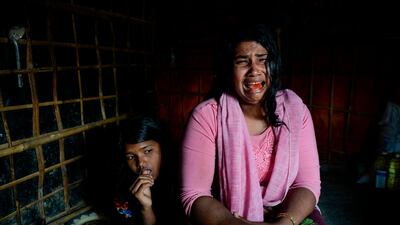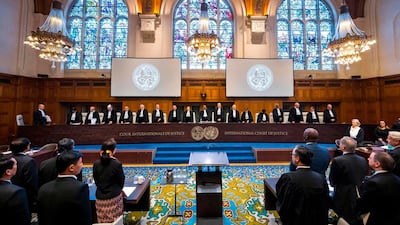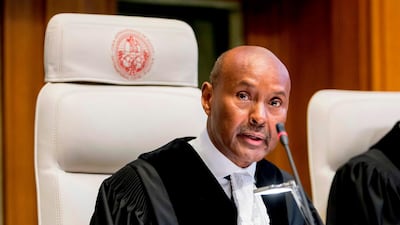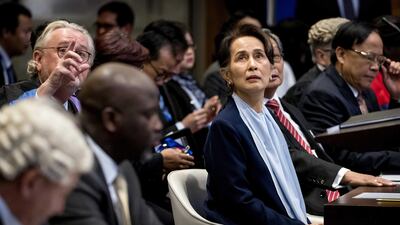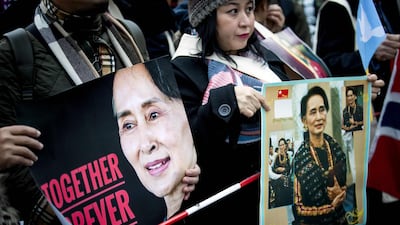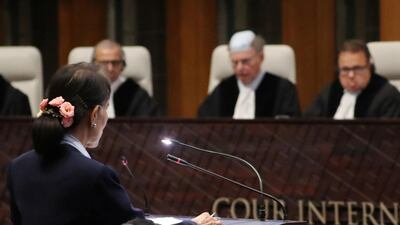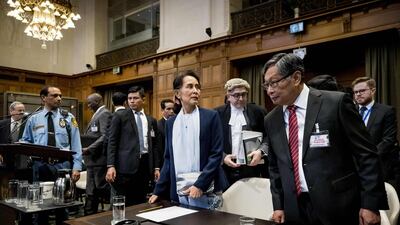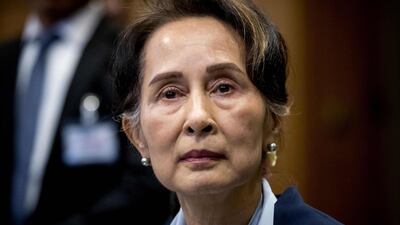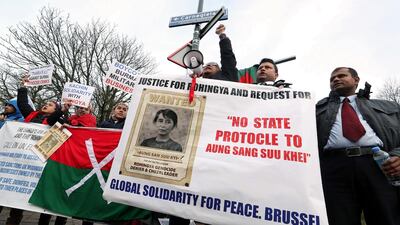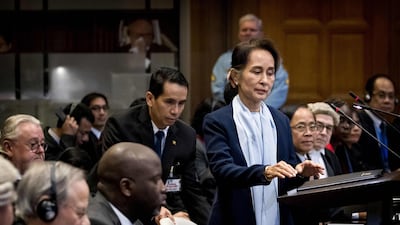From squalid refugee camps in Bangladesh, Rohingya who fled a brutal Myanmar military crackdown are calling on Aung San Suu Kyi to acknowledge the mass atrocities as she defends her country against genocide charges at the UN's top court.
The Nobel Peace Prize laureate defended the actions of Myanmar's military at the UN's top court on Wednesday, saying that the allegations brought by Gambia of genocide against Rohingya Muslims were "misleading and incomplete".
But the violence in 2017 sparked a mass exodus of some 740,000 Rohingya to refugee settlements in Bangladesh border towns, where survivors are still haunted by the rape and murder of loved ones by soldiers and vigilante mobs.
"Suu Kyi cannot deny anything. The international community must listen to our voice because we are the real victims," Sayed Ulla, a Rohingya leader, said from one of the camps in Bangladesh.
"I want to see the convicts go to the gallows. They killed us mercilessly. I won't get back my family," said widow Saida Khatun, who witnessed her parents, husband and three children being slaughtered.
"Only seeing them [perpetrators] being punished for their deeds will make me happy."
Widow Dildar Begum said her village of Tula Toli was razed and two of her children killed.
Revealing scars she said were caused by soldiers smashing her head with boots and rifle butts after raping her, Ms Begum recalled how her husband and two sons, aged one and five, were hacked to pieces.
"I still can hear my sons' voices in my dreams cursing me as I failed to save them," the 35 year old said, breaking down in tears.
UN investigators have concluded that the 2017 violence amounted to genocide, with Doctors Without Borders (MSF) estimating that at least 6,700 Rohingya were killed in the first month of the crackdown alone.
The case brought by the tiny West African nation of Gambia is the first international legal attempt to bring Myanmar to justice over the crisis.
Gambia, acting on behalf of the 57-nation Organisation of Islamic Cooperation, asked the ICJ to take emergency measures to halt Myanmar's "ongoing genocidal actions" against the Rohingya.

Myanmar's military has insisted its crackdown was needed to root out Rohingya militants who attacked border police posts in 2017.
Ms Suu Kyi has kept silent over the plight of the minority and defended the same generals who once kept her under house arrest for 15 years.
The hearing comes amid growing impatience in Dhaka over the presence of the refugees, who now number about a million, after two failed attempts to voluntarily repatriate them back to Myanmar's Rakhine state.
Before Ms Suu Kyi's ICJ appearance, hundreds of refugees gathered at one of the camps on Tuesday morning, chanting "Gambia, Gambia" and raising their fists.
"We prayed and chanted slogans for Gambia for filing the case against Myanmar," one refugee, who asked to remain anonymous, said after the rally.
"We hope we'll get justice."
